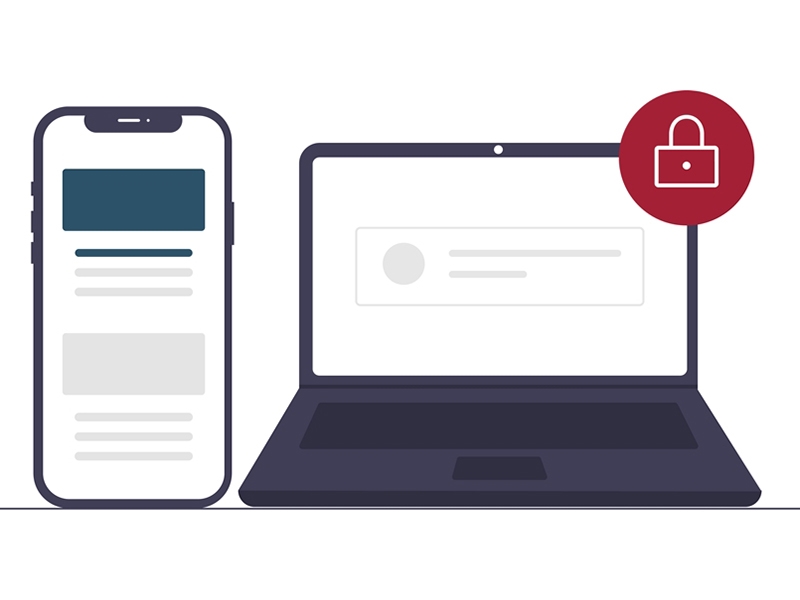In today's world, everyone has the potential to receive some kind of cyberattack. These may come in the form of emails, phone calls, text messages or other forums. Since cyber threats have been on the rise, it is important to know how to protect yourself and your information from a potential breach. There are numerous steps you can take to help reduce the risk of your personal information being compromised from a cyberattack, threat or scam.
PROTECT YOUR PASSWORD
Keeping your password safe plays a key role in securing your information or data. It is imperative that you do not write your password down, share it with others or reuse it. You should create a long and unique password for each of your accounts and update them frequently. Using a password manager can help keep track of your passwords and only requires you to remember one master password.
PRACTICE GOOD HYGIENE
As important as it is to keep up personal hygiene, you should also ensure that your devices have good cyber hygiene. Be sure to update your apps, web browsers and software regularly to proactively protect against data loss or other breaches that may occur. You should also install antivirus protection or malware on all devices to protect your information from any unauthorized access.
No one wants to have their personal or work information compromised, which is why we must keep ourselves protected. Protecting your password and practicing good device hygiene are two simple steps that you can take to reduce the risk of becoming a victim of a cyberattack.
If your device has been lost or stolen, has a virus, or you think your information has been wrongfully accessed, view the cybersecurity checklist for information on what steps to take.
October is National Cybersecurity Awareness Month! The month of October is dedicated to providing resources and awareness to help people around the country stay safe online. Everyone can take simple steps to protect themselves when using technology and the internet such as identifying and reporting phishing emails, using MFA and keeping your software updated. For more tips and information on how you can stay cyber safe, visit the IT Services cybersecurity checklist or the Cybersecurity & Infrastructure Security Agency (CISA).
Topics
Contacts
Ele Powell, assistant director of administrative communications
Division of Finance and Administration
479-718-1918, elep@uark.edu
